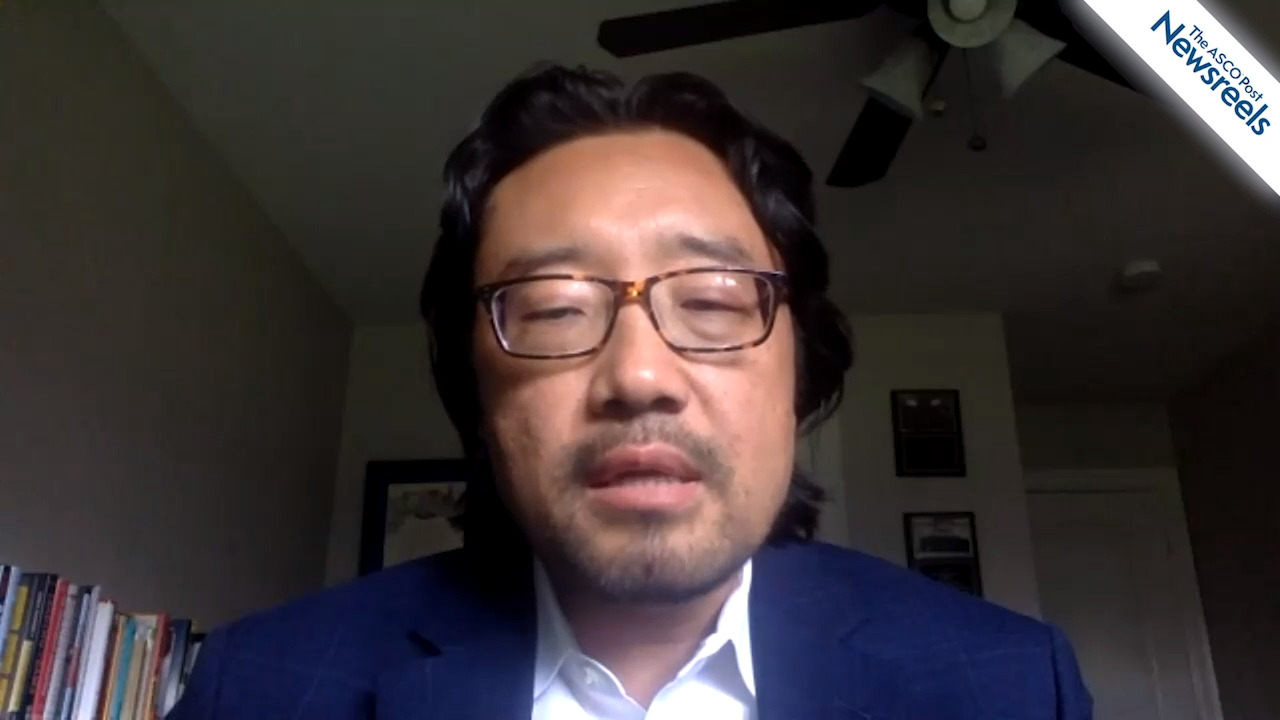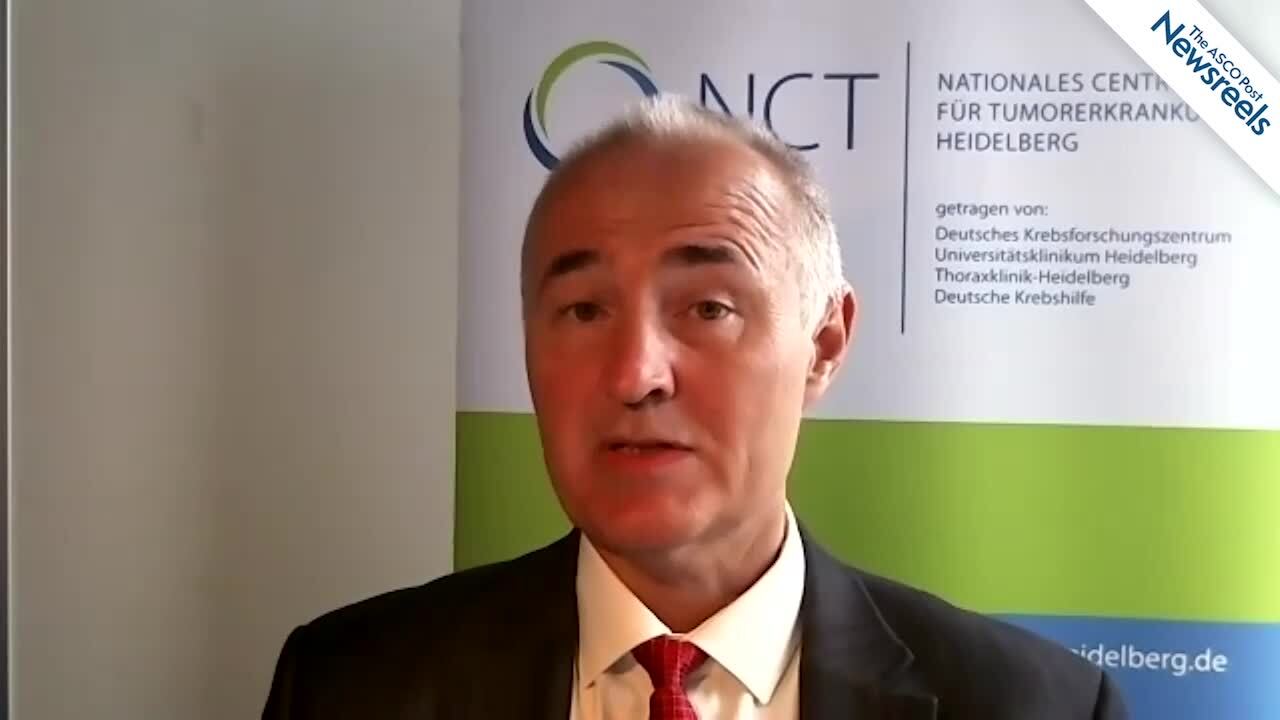Masahiro Tsuboi, MD, on NSCLC: Adjuvant Osimertinib in EGFR-Mutated Disease
ESMO Virtual Congress 2020
Masahiro Tsuboi, MD, of Japan’s National Cancer Center Hospital East, discusses the phase III results from the ADAURA study, which showed a reduced risk of local and distant recurrence in patients with resected EGFR-mutated non–small cell lung cancer, reinforcing adjuvant osimertinib as an effective treatment (Abstract LBA1).
The ASCO Post Staff
David S. Hong, MD, of The University of Texas MD Anderson Cancer Center, discusses study findings on sotorasib, a novel, first-in-class, oral KRASG12C inhibitor. The agent demonstrated durable disease control in heavily pretreated patients with non–small cell lung cancer (Abstract 1257O).
The ASCO Post Staff
Sumanta K. Pal, MD, of the City of Hope National Medical Center, discusses results from the COSMIC-021 study, which tested two different doses of cabozantinib, each with a standard dose of atezolizumab, administered to patients with metastatic advanced clear cell renal cell carcinoma. Dr. Pal reports on response rates and progression-free survival, as well as biologic correlates that may have influenced response (Abstract 702O).
The ASCO Post Staff
Lisa A. Carey, MD, of the University of North Carolina, discusses phase III results from two IMpassion trials, 130 and 131, which explored, respectively, atezolizumab plus nab-paclitaxel vs placebo plus nab-paclitaxel in previously untreated locally advanced or metastatic triple-negative breast cancer and first-line paclitaxel with or without atezolizumab for unresectable disease (Abstracts LBA15 and LBA16).
The ASCO Post Staff
Andreas Schneeweiss, MD, of the Heidelberg University Hospital and German Cancer Research Center, discusses phase III survival data from the GeparOcto trial, which compared the neoadjuvant chemotherapy intense dose-dense EPC (epirubicin, paclitaxel, and cyclophosphamide) with weekly paclitaxel and liposomal doxorubicin (with or without carboplatin in triple-negative breast cancer) for patients with high-risk early breast cancer (Abstract 160O).
The ASCO Post Staff
Nicholas D. James, PhD, MBBS, of The Institute of Cancer Research, London, discusses long-term STAMPEDE trial results that showed patients with metastatic, hormone-naive prostate cancer benefited from abiraterone acetate plus prednisolone in terms of overall and failure-free survival, as well as skeletal-related events (Abstract 611O).





